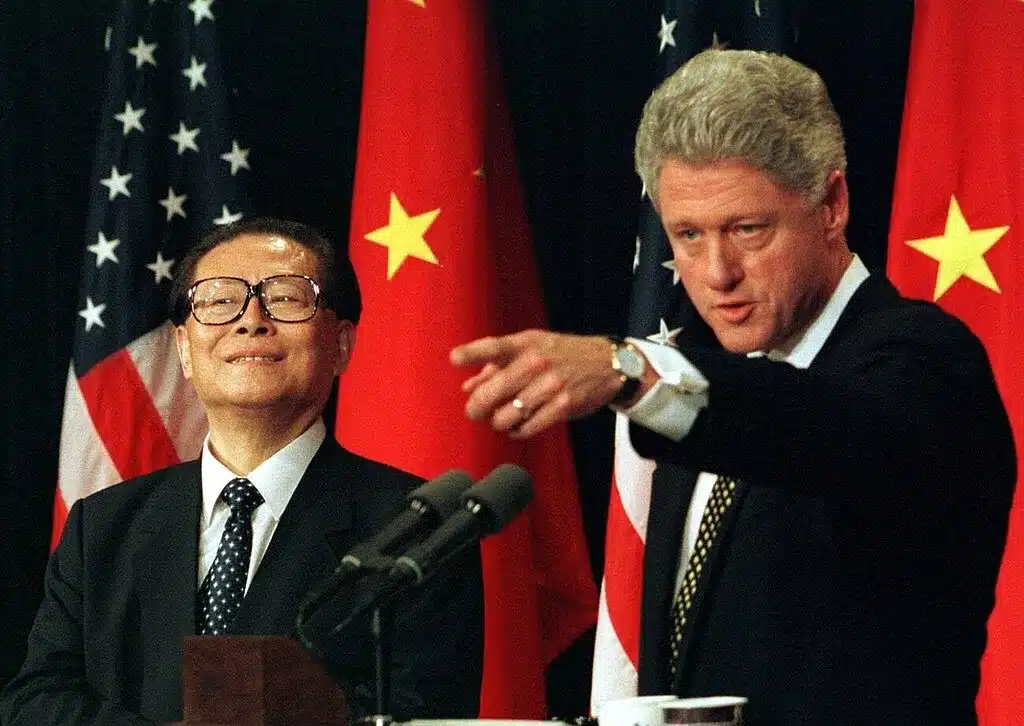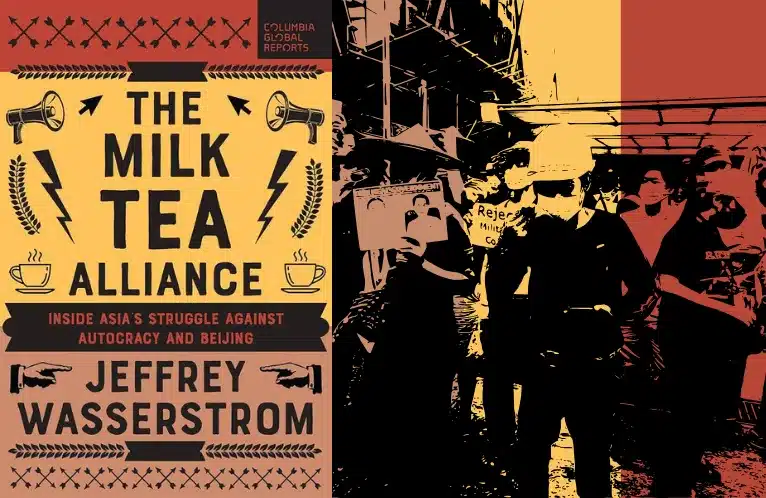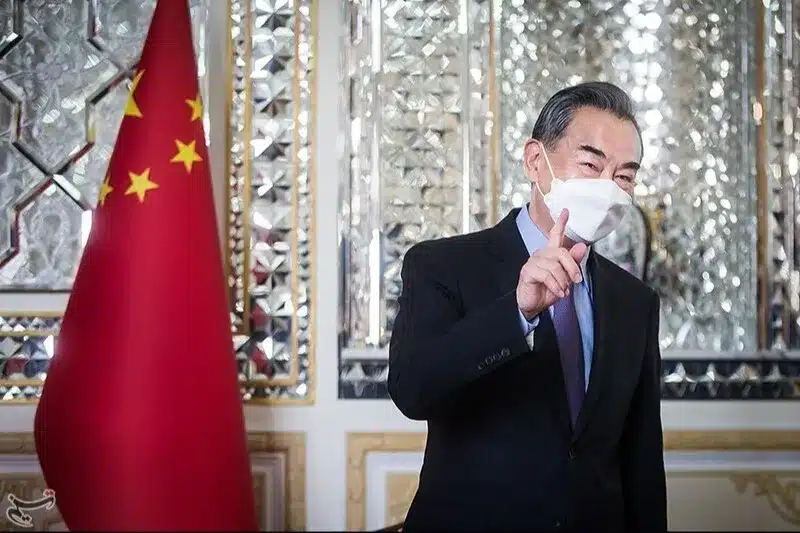Chinese Public Opinion on China’s Foreign Aid: Trade-offs or General Discontent?
International development aid is an essential component of economic statecraft. Traditionally a realm dominated by Western developed countries, the landscape of international development aid has broadened in recent years due to the rise of donors among emerging economies in the developing world. The rapid increase of Chinese foreign aid has been particularly noteworthy. The international reactions to this development are well-known, ranging from enthusiastic welcome by many governments in the Global South to serious concerns by Western governments and civil society about the negative economic, social, and environmental consequences of China-funded projects. Nonetheless, there has been little detailed analysis of how the domestic public in China views Chinese foreign aid.
One may suspect the undemocratic nature of the China’s political system would make the government impervious to societal pressure in conducting its foreign policy. However, authoritarian governments are not immune to public pressure. Like democratically elected governments, they also operate under domestic and international political constraints. Even in a one-party political system, the ruling Party is keen to win public support and minimize public opposition. Despite its façade of omnipotence, the Chinese Communist Party (CCP) is deeply concerned about what the public thinks of its policies. Given the potential for public opinion to constrain Chinese foreign policy, we believe it is important to understand the public attitude toward China’s growing foreign aid.
This is the subject of our study, ‘Public Opinion on Chinese Foreign Aid Policy: Calculated Opposition or General Discontent?’, which was recently published in the Journal of Contemporary China. By analyzing empirical data gathered from a variety of sources, including a well-established online forum, social media sites of two influential media organizations, and multi-year surveys of Beijing residents, our article presents a nuanced picture of what the Chinese public thinks of Chinese foreign aid and tests two popular explanations of public opposition to foreign aid: perceived budgetary trade-offs and more general dissatisfaction with government policies.
Public attitudes toward foreign aid
To the extent people in China have shown an interest in Chinese foreign aid, what do they think of it? We probe this question by studying the content of online comments on the social media sites of Global Times and Caixin, two influential media groups, and by analyzing survey data from a series of opinion polls of Beijing residents from 2007 to 2015.
Global Times is a newspaper group affiliated with the CCP’s mouthpiece, the People’s Daily. As a tabloid newspaper, it takes a populist/nationalist editorial approach and is often more jingoistic than the government’s official position on foreign policy issues. Its readers likely share its nationalistic perspective. In contrast, Caixin is a business publication that primarily reports business and financial stories. Founded by an outspoken investigative journalist, the Economist has described Caixin as ‘the rarest of things in China: a courageous media outlet, pursuing the truth in the face of intimidation.’ The readership of Caixin is likely to be relatively wealthy and well-educated and share its comparatively cosmopolitan perspective. We have chosen these two media organizations to study because they likely represent different corners of the media landscape and because their readers likely represent contrasting social-economic groups. We believe the social media content of these two groups (through their posts on Weibo, China’s equivalent of Twitter) and the reactions by their followers (through their comments on the posts) allow us to gauge a broad range of Chinese public opinion.
Figure 1 shows the patterns of public comments on Caixin’s foreign aid-related posts on Weibo from 2011 to 2018. Negative comments about Chinese foreign aid far exceed positive comments, often exceeding 80% of the total. Moreover, the gap between the two has not narrowed over time. Figure 2 shows the pattern of public comments on Global Times’s foreign aid-related posts on Weibo from 2012 to 2018. Unlike the comments on Caixin’s posts, which have been overwhelmingly negative throughout the period under investigation, the comments on Global Times’s posts are more evenly split. In the beginning, negative comments dominated, but later positive comments increased and surpassed the negative comments before they converged.


Source: calculation based on search results from Weibo.
This is counterintuitive given that the readers and social media followers of Caixin are likely to be wealthier and better educated than those of Global Times. Most studies of Western donor countries show that wealthier and better-educated individuals are more likely to support aid than poorer and less educated people. Scholars argue that better-educated people tend to have a more progressive and internationalist outlook, which often leads to greater support for foreign aid. Our data suggest that is not the case in China; in fact, attitudes appear to behave in the opposite way.
Social media content offers valuable information about public opinion. However, it is likely to reflect extreme views as people who make comments on social media platforms are self-selected individuals who harbor strong opinions. Furthermore, Global Times and Caixin are at opposite ends of the Chinese media landscape. Their comments tell of the range of attitudes among the Chinese public about foreign aid but may not reflect the views of the average citizen. To get a sense of what ordinary people think about Chinese foreign aid, we turn to examine public opinion polls.
Figure 3 shows the distribution of public opinions in a series of surveys of Beijing residents in the 2007, 2009, 2013, and 2015. The respondents were asked whether they thought China should increase its foreign aid, maintain the same aid level as before, or decrease foreign aid. From 2009 to 2015, the proportion favoring an increase in foreign aid declined while the proportion favoring a decrease grew significantly. This view is similar to the trendline reflected by the comments on Caixin’s Weibo posts.

To summarize, our analysis of online discussions and survey data presents an evolving and complex picture of public attitude toward China’s growing foreign aid. Public comments on Weibo posts suggest that wealthier, more educated, and cosmopolitan groups exhibit a more negative view than their less wealthy, less educated, and more nationalistic counterparts. Meanwhile, survey data from Beijing show considerable opposition among ordinary citizens to increasing Chinese foreign aid and an upward trend in the negative attitude in recent years.
Explaining public opposition to foreign aid
The literature about public opinion regarding foreign aid offers two popular explanations for why people may oppose their countries’ granting of foreign aid. The first explanation can be labeled as a trade-offs perspective. Studies conducted in traditional donor countries show that voters typically see foreign aid as charity toward others and thus there is a trade-off between spending resources on foreign aid and serving their own interests. The second explanation attributes people’s negative opinion about foreign aid to their discontent with government policies across a range of areas. Previous studies find that people’s preferences regarding foreign aid are related to their satisfaction with and trust in the government. Which of these two explanations fits better with the case of contemporary China?
We first test the trade-offs thesis against the survey data. If respondents’ support/opposition of foreign aid is negatively related to their support/opposition of domestic welfare programs, such as healthcare and education, or spending on national defense, it provides prima facie evidence for the trade-offs thesis. It suggests people’s opposition to spending resources helping others is based on their calculation of possible loss of resources for domestic needs or for the buildup of military might. On the other hand, if the respondents’ support/opposition of foreign aid is unrelated to or even positively related to their support/opposition of domestic welfare programs or defense spending, it negates the trade-offs thesis.
Our statistical analysis of the survey data shows that support for decreasing welfare spending is either not related or positively related to support for decreasing the foreign aid budget. Apparently, people do not see public spending on domestic priorities and foreign aid as trade-offs. Instead, they seem to have a consistent view of government spending across the board; those who do not like increases in government spending on domestic welfare also oppose more spending on foreign aid. Moreover, support for decreasing the defense budget is positively related to support for decreasing foreign aid. This suggests that many people in China do not view defense and aid as alternative ways to pursue international influence; instead, they have a similar attitude toward spending on these different foreign policy instruments.
The remarkable consistency in people’s attitudes toward government spending across policy areas casts serious doubts on the trade-offs thesis. Next, we examine the perspective that public opposition to foreign aid is due to more general discontent with government policies in a variety of areas.
Figures 4 and 5 show the results of content analysis of the comments on foreign aid-related posts on Weibo by Caixin (2011-2018) and Global Times (2012-2018). The most prominent themes embedded in the negative comments on Caixin‘s posts include general displeasure about China’s foreign policy, grievances about government negligence of domestic problems, sarcasm about the claims of moral high ground, opposition to accepting refugees, and a negative view of the government’s financial policy. Meanwhile, the most salient complaint in the negative commentaries on Global Times‘s posts is government negligence of domestic problems. That is followed by criticisms of wasted foreign aid, general displeasure about China’s foreign policy, perceptions of unfriendliness of aid recipient countries, and complaints about the government’s lack of policy accountability and transparency. The cost of foreign aid is much lower down on the list for both sets of negative comments.


Clearly, public opposition to foreign aid is associated with dissatisfaction with various other government policies. We believe that the empirical evidence presented here strongly suggests the possibility that public opposition to foreign aid is related to discontent with government performance in a range of domestic and foreign policy areas.
Government attempt to guide public opinion
With its omnipresent monitoring of Chinese citizens, the Chinese government is no doubt aware of the negative views expressed online and elsewhere about its foreign aid programs. Through government-controlled media and official white papers, the CCP has tried to justify its foreign aid policy and guide public opinion. Our research shows that, unlike its counterparts in democratic countries, the Chinese government has largely avoided speaking openly about the utility of foreign aid for China. Instead, it explains Chinese foreign aid in terms of international cooperation, economic development, South-South cooperation, and Chinese generosity and friendship toward other countries. This is understandable given the CCP’s eagerness to counter international suspicions that it uses foreign aid to serve its own interests.
However, framing foreign aid exclusively in terms of good international citizenship has not been an effective way to generate domestic support. Our research shows strong dissonance between the official rhetoric and the public discourse about foreign aid. As Figures 4 and 5 above indicate, the negative social media comments on China’s foreign aid complain about domestic poverty, the lack of welfare for people in China, the government’s financial policy, wasteful foreign aid, the lack of policy transparency and government accountability. In sharp contradistinction, the official discourse does not address any of these issues.
Even the positive public comments about foreign aid on social media diverge from the official discourse. Figures 6 and 7 show the most salient reasons cited in support of foreign aid noted by the comments on Caixin‘s and Global Times‘s posts. Positive comments on Caixin‘s posts emphasize strategic gains for China (such as political support in international organizations and security cooperation) and humanitarian considerations. In contrast, those on Global Times‘s posts stress strategic gains and economic benefits (such as investment opportunities and access to natural resources) that foreign aid can bring. Ordinary citizens are primarily interested in the instrumental payoffs foreign aid can generate for China, which is quite different from the government’s framing.


Not surprisingly, although the Chinese government has intensified its campaign to rationalize its foreign aid policy in recent years, considerable opposition remains. The last few years have seen frequent outbursts of public anger in China about the government’s generous assistance to other countries as well as its ultra-favorite treatment of international students.
We hope our study helps improve our understanding of what the Chinese public thinks about China’s growing foreign aid and why they may think the way that they do. On the policy front, our exploration of the nature of opposition to foreign aid among the concerned public has important implications for China’s economic statecraft. If the critical factor underlying public opposition lies in calculations of trade-offs, then the government can mobilize information on foreign aid, e.g., how small a portion foreign aid is of the government budget and how it helps accomplish China’s policy goals both at home and abroad. On the other hand, if the opposition reflects discontent with a broad range of government policies, it will take more profound changes to increase public support for China’s foreign aid.








